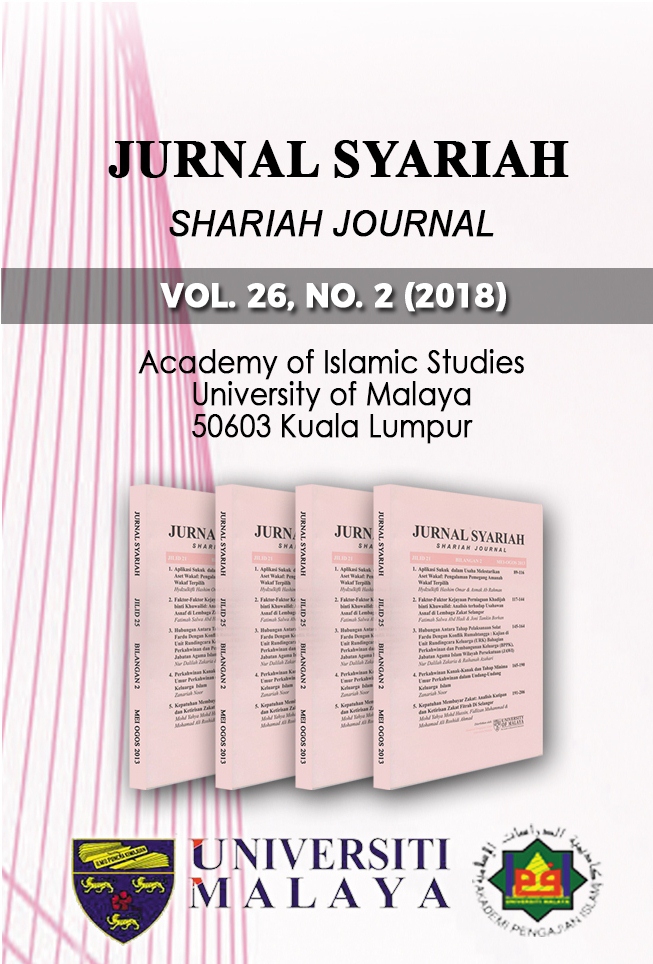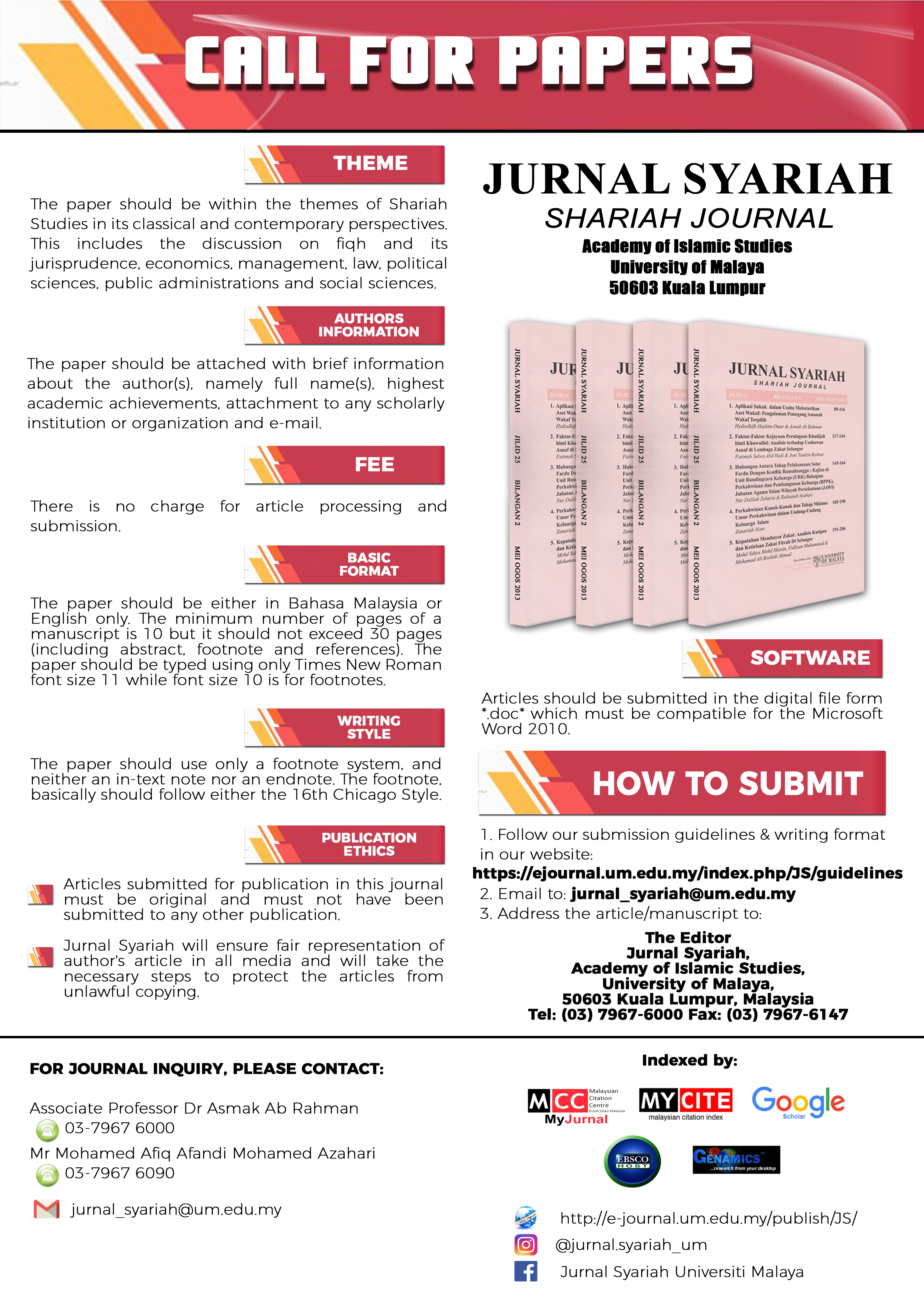AMALAN PENGHAKIMAN DALAM KES WASIAT WAJIBAH KEPADA WARIS BERBEZA AGAMA: KAJIAN KES TERPILIH
The Practice of Judgment of Wajibah Will to the Heirs of Different Religion: A Selected Case Study
DOI:
https://doi.org/10.22452/js.vol26no2.4Keywords:
wajibah will, heirs of different religion, method of judgment, ShariahAbstract
The judge is the party with the authority in the law, but sometimes the law that has been enacted does not always fit with the Shariah. Therefore, the purpose of this study is to analyze the decision of the judges in relation to the wajibah wills to the heirs of different religion and the judgment method employed by the judge in determining these decisions in the Islamic perspective. This study is a qualitative descriptive study that combines law in book with law in action by using interview methods to 16 judges in East Java Province, Indonesia and using documentation as a method of data collection. The findings show that the judges gave a wajibah will to the heirs of different religion on the rationale that Islam is the religion of ‘raḥmatan li al-‘ālamīn’ and the method used by the judge is maqāṣid al-sharī‘ah towards ḥifẓ al-nasl and the analogious of zakāh. The decision of the wajibah will to the heirs of the different religions is not in accordance with the Shariah because it violates the rules of Allah SWT in sūrah al-Nisā’ verse 14. While the method used by the judge does not conform to Shariah also because the practice of Shariah goal should pay attention to five necessities by prioritizing the keeping of religion than the keeping of offspring.
Downloads
Downloads
Published
How to Cite
Issue
Section
License

This work is licensed under a Creative Commons Attribution-NonCommercial 4.0 International License.
COPYRIGHT: All rights reserved. Not allowed to be reproduced any part of articles and contents of this journal in any form or by any way, whether electronic, mechanical, photocopying, recording or otherwise without permission in writing from the Chief Editor, Jurnal Syariah.



















